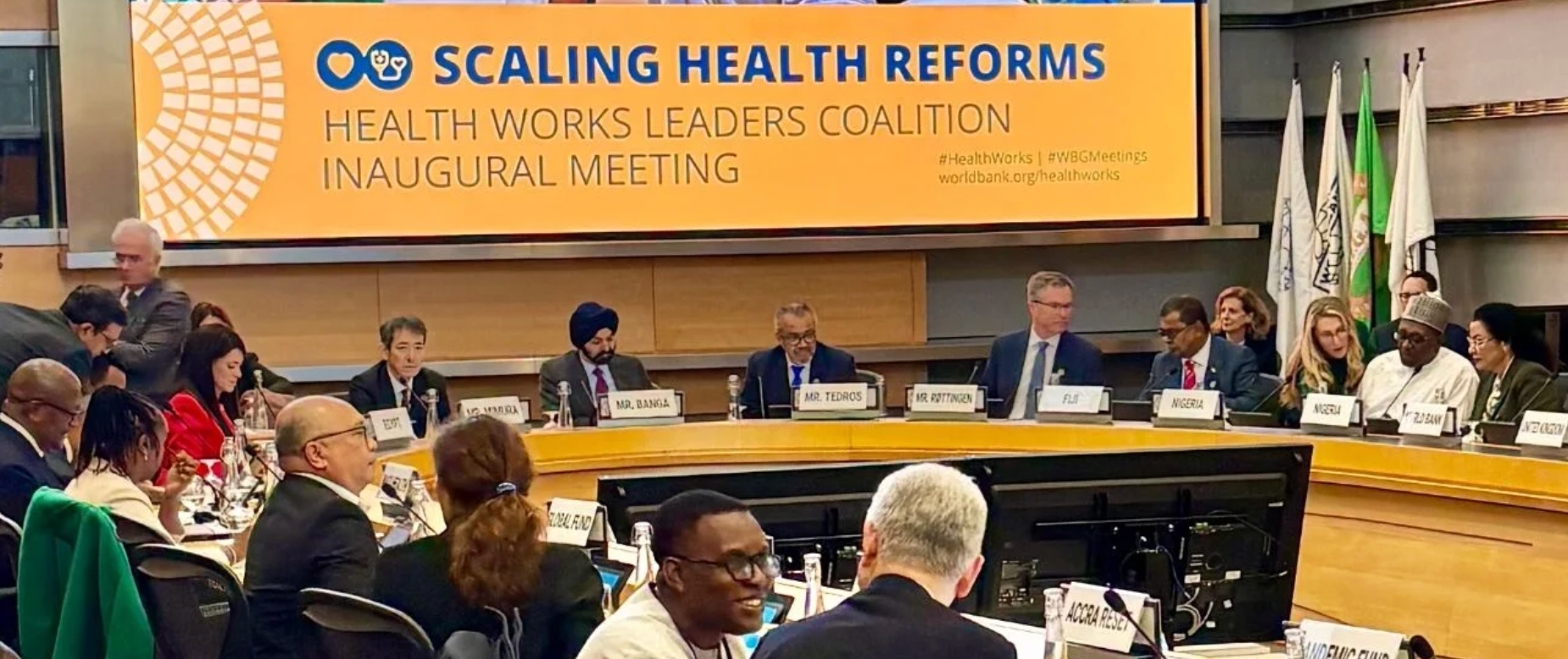This paper develops a conceptual framework to integrate healthcare financing and delivery in India’s fragmented private sector so that competition promotes value rather than service volume. Drawing on international models from Israel, the U.S., Spain, Brazil, and the...

The Durban Promise – Moving Toward Self-Reliance to Achieve Universal Health Coverage and Health Security in Africa
The 4th International Conference on Public Health in Africa (CPHIA 2025) emphasized health sovereignty as essential for Africa’s economic and security future amid rising health emergencies and shrinking external funding. Under the theme “Moving Toward Self-Reliance,”...

Bridging The Healthcare Gap in India: CSR As A Catalyst For UHC
In 2025, CSR plays a crucial role in accelerating Universal Health Coverage by bridging public system gaps through financing, digital health, and specialist care partnerships. Aligning CSR with national priorities, measurable outcomes, and sustainable handover ensures...

85% of Moroccans Covered, But Out-of-Pocket Costs Still High
Bank Al-Maghrib’s study reveals that despite Morocco’s 85 percent health coverage, households still pay 38 percent of health costs—well above global standards. Fragmented schemes and high out-of-pocket expenses strain families. The report urges reforms to enhance...

As NCDs surge, Nepal’s health budget falls
Nepal faces a critical rise in non-communicable diseases, now causing over 70% of deaths. Health funding remains below 5% of the national budget, far from the WHO-recommended 10%. Inadequate, infrastructure-focused spending hampers quality care, prevention, and...
WHO Malawi Country Office Comprehensive Annual Report Year 2024
The 2024 WHO Malawi Country Office Report shows major progress toward Universal Health Coverage and stronger health systems, achieved through alignment with national strategies and partner collaboration. Nine district-level reforms introduced integrated,...
Stay the Course – 2025 Health Sector Presentation in Jamaica
This document from the Jamaican Ministry of Health and Wellness reports on the honourable Minister Dr Chris Tufton’s sector of the Health Sector in 2025. Specifics include health spending numbers as well as reference to increased benefit coverage from the National...

Mobilizing resources for care: A holistic approach for financing Albania’s universal care services
Albania’s gender gap in employment stems largely from women’s unpaid care responsibilities, despite gains in education and equality. Expanding and formalizing the care economy could boost growth, jobs, and revenues. Financing this requires tax reforms, reduced...
Malians call for universal health care
Mali has made progress in health outcomes such as reduced infant, under-5, and maternal mortality and increased life expectancy, supported by reforms like the 2018 universal health insurance plan. However, access to quality care remains limited due to funding...
Progress and inequalities in financial risk protection toward universal health coverage: insights from Vietnam
The study analyzes Vietnam’s progress on financial risk protection (FRP) as part of Universal Health Coverage using data from six national surveys covering 2010–2020. It evaluates multiple FRP indicators, including catastrophic, impoverishing, and financial hardship...

Global leaders launch coalition to boost health investment and economic growth
The World Bank, Japan & WHO launched the Health Works Leaders Coalition to boost health investments, job creation & resilience, aiming to reach 1.5B people with affordable care by 2030.The World Bank Group, Government of Japan, and World Health Organisation...
Economic Drivers of Public Health Expenditure in Kenya
The study examined how macroeconomic factors such as GDP per capita, corruption, unemployment, fiscal deficit, and tax revenue influence public health expenditure in Kenya from 1990 to 2023. Using the ARDL model, results showed that corruption, GDP per capita, tax...

VietNam and World Bank strengthen cooperation to expand social security coverage
VSS and the World Bank discussed expanding social security coverage, especially for informal workers. The Bank proposed raising voluntary insurance subsidies to 50 percent and introducing Monotax and flexible insurance models. Both sides agreed to enhance digital...
Piecing the Puzzle: Addressing the Multi-Payer and Fragmented Health Financing System in the Philippines
Over the past decade, government health spending in the Philippines has grown rapidly, supported by expanded fiscal space, stronger health policies, and rising national income. Despite this progress, the health financing system remains fragmented, with overlapping...

Budget 2026: Breaking the Cycle—Malaysia’s Path to Resilient and Inclusive Public Healthcare Reform
Malaysia’s public healthcare is plagued by understaffing, low morale, overcrowding, and stagnant reform. Budget 2026 plans to absorb contract doctors, boost spending, strengthen public-private partnerships, roll out tech-driven workforce mapping, and build inclusive...
